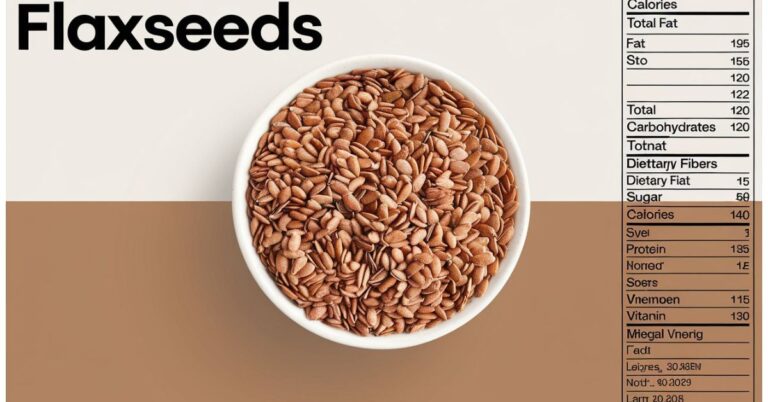How do you Lower your Blood Sugar
| Outline | Subtopics | |||
| Introduction | Understanding Blood Sugar and Its Importance | |||
| Understanding Blood Sugar Levels | Why Maintaining Normal Blood Sugar is Crucial | |||
| Causes of High Blood Sugar | Common Factors Leading to Elevated Blood Sugar | |||
| Symptoms of High Blood Sugar | Recognizing the Signs of Elevated Blood Sugar | |||
| Risks of Uncontrolled Blood Sugar | The Impact of High Blood Sugar on Health | |||
| The Role of Diet in Blood Sugar Control | How Nutrition Influences Blood Sugar Levels | |||
| Key Nutrients to Lower Blood Sugar | Essential Nutrients for Blood Sugar Management | |||
| Fiber and Blood Sugar | The Importance of Dietary Fiber in Regulating Blood Sugar | |||
| The Power of Magnesium | How Magnesium Supports Blood Sugar Control | |||
| Chromium for Blood Sugar Management | The Benefits of Chromium in Blood Sugar Regulation | |||
| Role of Antioxidants | How Antioxidants Help Stabilize Blood Sugar Levels | |||
| Omega-3 Fatty Acids | The Impact of Omega-3s on Blood Sugar Levels | |||
| The Importance of Protein | How Protein Intake Affects Blood Sugar Levels | |||
| Vitamin D and Blood Sugar | The Link Between Vitamin D Deficiency and Blood Sugar | |||
| Probiotics for Blood Sugar | How Gut Health Influences Blood Sugar Regulation | |||
| The Benefits of Cinnamon | How Cinnamon Helps Lower Blood Sugar | |||
| Apple Cider Vinegar | The Role of Apple Cider Vinegar in Blood Sugar Control | |||
| The Role of Zinc | Zinc’s Role in Insulin Sensitivity and Blood Sugar | |||
| Potassium and Blood Sugar | Balancing Potassium for Better Blood Sugar Management | |||
| Herbal Remedies | Herbs That Can Help Manage Blood Sugar Levels | |||
| Foods to Include | Nutrient-Rich Foods to Lower Blood Sugar | |||
| Foods to Avoid | Foods That Can Spike Blood Sugar | |||
| Balanced Meals | How to Create Meals That Stabilize Blood Sugar | |||
| Hydration and Blood Sugar | The Role of Proper Hydration in Blood Sugar Management | |||
| Exercise and Blood Sugar | How Physical Activity Lowers Blood Sugar Levels | |||
| Stress Management | The Connection Between Stress and Blood Sugar | |||
| Sleep and Blood Sugar | How Sleep Patterns Affect Blood Sugar Levels | |||
| Monitoring Blood Sugar | The Importance of Regular Blood Sugar Monitoring | |||
| When to Seek Medical Advice | Recognizing When You Need Professional Help | |||
| Conclusion | Summary and Encouragement for Blood Sugar Management | |||
| FAQs | Common Questions About Lowering Blood Sugar with Nutrients | |||
Title: 10 Powerful Nutrients to Lower Blood Sugar Fast: A Complete Guide
- Introduction
- Blood sugar levels are critical to overall health, especially for individuals managing diabetes or prediabetes. High blood sugar, also known as hyperglycemia, occurs when there’s too much glucose circulating in the bloodstream. If not handled properly, this condition can lead to a host of complications, including cardiovascular disease, nerve damage, and kidney problems. Fortunately, lowering blood sugar with nutrients is a natural and effective strategy that can significantly improve your health and quality of life.
Understanding the relationship between nutrients and blood sugar control can empower you to make informed dietary choices that help stabilize your glucose levels. Whether you’re looking to reduce your dependence on medications or simply want to adopt a healthier lifestyle, knowing which nutrients play a role in managing blood sugar is essential. In this guide, we’ll explore how to lower your blood sugar with nutrients, discussing the vital elements your body needs and how to incorporate them into your daily routine.
- Understanding Blood Sugar Levels
- Maintaining optimal blood sugar levels is crucial for everyone, not just those with diabetes. Blood sugar, or glucose, is the primary energy source for your body’s cells, derived from your food. When you consume carbohydrates, they are broken down into glucose and enter the bloodstream. Insulin, a hormone produced by the pancreas, helps transport glucose from the blood into the cells, where it’s used for energy.

Normal fasting blood sugar levels typically range from 70 to 99 mg/dL, while levels between 100 and 125 mg/dL indicate prediabetes. A reading of 126 mg/dL or higher on two separate tests confirms diabetes. Keeping blood sugar within these ranges can prevent the complications associated with both low and high blood sugar, making it a vital part of overall health.
- Causes of High Blood Sugar
- Several factors can lead to elevated blood sugar levels. Diet plays a significant role; consuming high amounts of refined sugars and carbohydrates can cause spikes in glucose. Lack of physical activity is another contributor, as exercise helps muscles use glucose more effectively. Stress and illness can also raise blood sugar levels, as can inadequate sleep. Certain medications, including steroids and some diuretics, might also affect blood sugar control. Understanding these causes allows for better management and prevention strategies.

- Symptoms of High Blood Sugar
- Recognizing the symptoms of high blood sugar can prompt early intervention and prevent severe complications. Common symptoms include frequent urination, increased thirst, and unexplained weight loss. You may also experience fatigue, blurred vision, and slow healing of wounds. In more severe cases, high blood sugar can lead to ketoacidosis, a potentially life-threatening condition characterized by fruity-smelling breath, nausea, and confusion. If you experience any of these symptoms persistently, it’s crucial to consult a healthcare provider.
- Risks of Uncontrolled Blood Sugar
- Uncontrolled blood sugar levels can wreak havoc on your body over time. Persistent hyperglycemia can damage blood vessels and nerves, leading to complications such as heart disease, stroke, kidney failure, and vision problems. It can also impair your immune system, increasing the risk of infections. For individuals with diabetes, poor blood sugar control is a leading cause of lower limb amputations and a significant factor in the development of neuropathy, a painful nerve condition.
- The Role of Diet in Blood Sugar Control
- Diet is one of the most powerful tools for managing blood sugar levels. The foods you eat directly impact how your body processes glucose and insulin. A balanced diet that emphasizes whole foods, lean proteins, healthy fats, and complex carbohydrates can help regulate blood sugar. Conversely, diets high in processed foods, sugary snacks, and refined grains can cause dramatic spikes and crashes in glucose levels. Making smart dietary choices is a cornerstone of effective blood sugar management.
- Key Nutrients to Lower Blood Sugar
- Certain nutrients have been shown to benefit blood sugar levels, making them valuable components of a diabetes management plan. Key nutrients include fiber, magnesium, chromium, antioxidants, omega-3 fatty acids, and protein. These nutrients support various bodily functions that help regulate blood sugar, from improving insulin sensitivity to slowing the absorption of sugar into the bloodstream.
- Fiber and Blood Sugar
- Dietary fiber, particularly soluble fiber, is crucial in managing blood sugar levels. It slows the digestion and absorption of carbohydrates, preventing rapid spikes in blood glucose. Foods rich in fiber, such as oats, legumes, fruits, and vegetables, can help maintain steady blood sugar levels. The recommended daily fiber intake is about 25 grams for women and 38 grams for men, but most people fall short of this target. Incorporating more fiber-rich foods into your diet is an easy and effective way to improve blood sugar control.
- The Power of Magnesium
- Magnesium is a mineral involved in over 300 enzymatic reactions in the body, including glucose metabolism. Studies have shown that magnesium deficiency is linked to an increased risk of developing type 2 diabetes and poor blood sugar control. Foods high in magnesium, such as spinach, almonds, and whole grains, can help improve insulin sensitivity and reduce blood sugar levels. If you suspect a deficiency, speak with your healthcare provider about the possibility of magnesium supplements. Learn more…

- Chromium for Blood Sugar Management
- Chromium is an essential trace element that enhances insulin’s action, helping to regulate blood sugar levels. Research suggests that chromium supplementation can improve blood sugar control in people with type 2 diabetes. Good dietary sources of chromium include broccoli, nuts, whole grains, and lean meats. While supplementation can be beneficial, it’s best to obtain nutrients from food whenever possible, as high doses of chromium can cause adverse effects.
- Role of Antioxidants
- Antioxidants, such as vitamins C and E, play a role in blood sugar control by reducing oxidative stress, which is a contributing factor to insulin resistance. Oxidative stress occurs when there’s an imbalance between free radicals and antioxidants in the body, leading to cell damage. Antioxidant-rich foods, including berries, nuts, and green leafy vegetables, can help protect cells and improve insulin sensitivity, thus aiding in blood sugar management.
- Omega-3 Fatty Acids
- Omega-3 fatty acids, found in fatty fish, flaxseeds, and walnuts, have anti-inflammatory properties that can improve insulin sensitivity and lower blood sugar levels. These healthy fats also support heart health, which is crucial for individuals with diabetes, as they are at higher risk for cardiovascular disease. Including omega-3-rich foods in your diet can be a powerful strategy for overall health and blood sugar control.

- The Importance of Protein
- Protein is essential for maintaining muscle mass and providing a steady energy source, both of which are important for blood sugar regulation. Unlike carbohydrates, protein does not cause a significant spike in blood glucose levels. Instead, it provides a slow and steady release of glucose into the bloodstream. Incorporating lean proteins, such as chicken, fish, beans, and tofu, into your meals can help stabilize blood sugar levels and keep you feeling full longer, reducing the likelihood of overeating.
- Vitamin D and Blood Sugar
- Vitamin D plays a role in glucose metabolism and insulin sensitivity. Research suggests that vitamin D deficiency is associated with an increased risk of type 2 diabetes. Sun exposure is the best source of vitamin D, but it can also be found in foods like fatty fish, fortified dairy products, and egg yolks. If you have low vitamin D levels, supplements may be necessary, but it’s important to have your levels tested and consult with a healthcare provider before starting supplementation.
- Probiotics for Blood Sugar
- Emerging research suggests that gut health plays a significant role in blood sugar regulation. Probiotics, which are beneficial bacteria found in fermented foods like yogurt, kefir, and sauerkraut, can improve insulin sensitivity and reduce inflammation. Maintaining a healthy balance of gut bacteria can also aid in weight management, which is closely linked to blood sugar control. Including probiotic-rich foods in your diet or taking a probiotic supplement can support overall health and help manage blood sugar levels.
- The Benefits of Cinnamon
- Cinnamon is not just a flavorful spice; it also has potential benefits for blood sugar control. Studies suggest that cinnamon can mimic insulin and increase glucose uptake by cells, effectively lowering blood sugar levels. Adding cinnamon to your diet can be as simple as sprinkling it on oatmeal, yogurt, or in smoothies. However, it’s important to note that while cinnamon can be beneficial, it should not replace conventional treatments prescribed by your healthcare provider.
- Apple Cider Vinegar
- Apple cider vinegar has been touted for its blood sugar-lowering effects. It works by improving insulin sensitivity and slowing the digestion of carbohydrates, which helps prevent blood sugar spikes. Consuming apple cider vinegar before meals may help stabilize blood sugar levels, but it’s important to use it in moderation due to its acidity. Diluting one to two tablespoons in a large glass of water before meals is a common recommendation.
- The Role of Zinc
- Zinc is another trace mineral that plays a critical role in insulin production and secretion. Zinc deficiency has been linked to impaired insulin function and higher blood sugar levels. Including zinc-rich foods, such as meat, shellfish, legumes, and seeds, in your diet can support healthy blood sugar levels. Zinc supplements are also available, but it’s best to aim for a balanced diet that provides adequate amounts of all essential nutrients.
- Potassium and Blood Sugar
- Potassium is crucial for maintaining proper muscle and nerve function, and it also plays a role in blood sugar control. Low potassium levels can impair insulin secretion and sensitivity, leading to higher blood sugar levels. Bananas, sweet potatoes, spinach, and avocados are all excellent sources of potassium that can support overall health and blood sugar management.
- Herbal Remedies
- Several herbs have shown promise in managing blood sugar levels. For example, berberine, found in several plants, has been shown to lower blood sugar and improve insulin sensitivity. Fenugreek seeds, rich in soluble fiber, can also help lower blood glucose. While herbal remedies can be beneficial, it’s important to use them under the guidance of a healthcare provider, especially if you are taking medications for diabetes.
- Foods to Include
- A diet rich in whole, unprocessed foods is your best defense against high blood sugar. Focus on including leafy greens, berries, nuts, seeds, and lean proteins. Whole grains, such as quinoa and barley, can provide complex carbohydrates that don’t spike blood sugar as dramatically as refined grains. Incorporating these nutrient-dense foods into your meals can help maintain stable blood sugar levels.

- Foods to Avoid
- To keep blood sugar levels in check, it’s important to avoid foods that cause rapid spikes in glucose. Sugary beverages, processed snacks, white bread, and pastries are some of the main culprits. These foods are high in refined sugars and low in nutritional value, leading to quick surges in blood sugar. Limiting or avoiding these items can make a significant difference in blood sugar management.
- Balanced Meals
- Creating balanced meals that include a combination of protein, healthy fats, and complex carbohydrates can help stabilize blood sugar levels. For example, a meal consisting of grilled chicken, quinoa, and steamed vegetables provides a balanced ratio of macronutrients that support steady glucose levels. Avoiding high-sugar and high-carb meals without adequate protein or fiber can help prevent spikes in blood sugar.
- Hydration and Blood Sugar
- Staying hydrated is essential for overall health and can also help regulate blood sugar levels. Dehydration can lead to higher blood sugar because the body produces more concentrated glucose. Drinking plenty of water and limiting sugary drinks can help keep your blood sugar levels in a healthy range.
- Exercise and Blood Sugar
- Physical activity is one of the most effective ways to lower blood sugar levels. Exercise increases insulin sensitivity, meaning your cells can use available glucose more effectively. Activities like walking, cycling, and strength training can all contribute to better blood sugar control. Aim for at least 30 minutes of moderate exercise most days of the week to see benefits.
- Stress Management
- Chronic stress can negatively impact blood sugar levels by triggering the release of hormones like cortisol, which increases glucose production. Managing stress through techniques like meditation, deep breathing, or yoga can help keep blood sugar levels in check. Regular relaxation practices not only support mental health but also contribute to overall physical well-being.
- Sleep and Blood Sugar
- Sleep plays a critical role in blood sugar regulation. Poor sleep can lead to increased insulin resistance and higher blood sugar levels. Aim for 7-9 hours of quality sleep per night to support optimal blood sugar control. Creating a bedtime routine and minimizing screen time before bed can improve sleep quality.
- Monitoring Blood Sugar
- Regular monitoring of blood sugar levels is crucial for managing diabetes and preventing complications. Self-monitoring with a glucose meter can help you understand how different foods, activities, and medications affect your blood sugar. Keeping a log of your readings can also provide valuable insights that can be shared with your healthcare provider.
- When to Seek Medical Advice
- If you’re struggling to manage your blood sugar levels despite making dietary and lifestyle changes, it’s important to seek medical advice. Persistent high blood sugar can lead to serious health complications, and a healthcare provider can help you develop a personalized plan that includes medications or other interventions if necessary.
Conclusion
Managing blood sugar levels is a vital aspect of health, especially for individuals with diabetes or prediabetes. By understanding how to lower your blood sugar with nutrients, you can make informed choices that support better blood sugar control. Incorporating key nutrients, maintaining a balanced diet, staying active, and managing stress are all essential strategies for keeping your blood sugar in check. Remember, small changes can lead to significant improvements in your health over time.
- FAQs
- How does magnesium help lower blood sugar?
- Magnesium plays a role in insulin sensitivity and glucose metabolism, helping to regulate blood sugar levels. Foods rich in magnesium, like spinach, nuts, and whole grains, can support healthy blood sugar control.
- Can fiber help manage blood sugar levels?
- Yes, fiber, especially soluble fiber, slows the absorption of sugar into the bloodstream, preventing spikes in blood sugar levels. Foods high in fiber, such as fruits, vegetables, and legumes, are beneficial for blood sugar management.
- Is cinnamon effective for lowering blood sugar?
- Cinnamon has been shown to improve insulin sensitivity and lower blood sugar levels by mimicking insulin and increasing glucose uptake by cells. Adding cinnamon to your diet can be a helpful natural approach to managing blood sugar.
- What foods should I avoid to keep my blood sugar in check?
- Avoid foods high in refined sugars and processed carbohydrates, such as sugary drinks, pastries, white bread, and candy. These foods can cause rapid spikes in blood sugar levels.
- Can probiotics help with blood sugar control?
- Yes, probiotics can improve gut health, which is linked to better blood sugar regulation and insulin sensitivity. Including fermented foods like yogurt and kefir in your diet can support blood sugar management.
- When should I see a doctor about my blood sugar levels?
- If you consistently experience high blood sugar levels despite dietary and lifestyle changes, or if you have symptoms like excessive thirst, frequent urination, or unexplained weight loss, it’s important to consult a healthcare provider for further evaluation and management.







